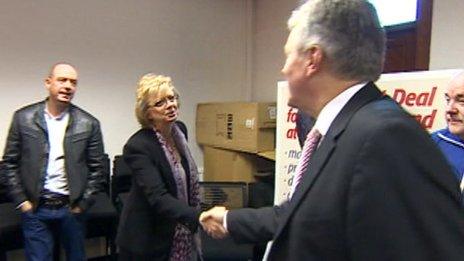Birmingham pub bombings: 'IRA mole tipped off police'
- Published
Two bombs exploded at the Mulberry Bush and the Tavern in the Town in November 1974
An IRA informant may have told police about the 1974 Birmingham pub bombs before they exploded, a coroner heard.
Birmingham and Solihull coroner Louise Hunt is hearing an application to resume inquests into 21 deaths.
She has ordered police to produce any information on claims the force may have been tipped off in advance.
The coroner also set a provisional date of 6 April when she will deliver her decision about whether the inquests can resume.
Ashley Underwood QC, who represents some victims' families, said there was "reason to believe it's the case" police received information.
More on this story and others Birmingham and Black Country
Mr Underwood said West Midlands Police officers may have wrongly prosecuted six men - who became known as the Birmingham Six and whose convictions were quashed in 1991 - knowing they were innocent in order to protect their "mole" and cover up their prior knowledge of the attacks.
"There is reason to believe the gang of murderers had an informant in their ranks and that the police knew in advance," he said.
"And there is reason to believe the police had sufficient time, between the telephone warnings and the first bomb going off, to evacuate - and that the emergency services could have arrived earlier - but that records about those things were falsified."
'Get the evidence'
Ms Hunt asked the force to provide by 3 March a list of evidence which has been lost or destroyed.
She also asked for the disclosure of documents to do with: advanced warnings and timings of the bombings, the response times on the night, whether or not there was an informant, whether all reasonable steps were taken at the time and whether documents were falsified to protect an informant or others.
A summary of the police investigations carried out since 1991 was also requested.
Julie Hambleton, whose 18-year-old sister Maxine died in the attacks, said she was "cautiously optimistic" about the inquests resuming.
Speaking outside the hearing, she said: "What the coroner has asked for is for West Midlands Police to provide a body of material in order to get the evidence for the families involved and to get the inquest resumed."
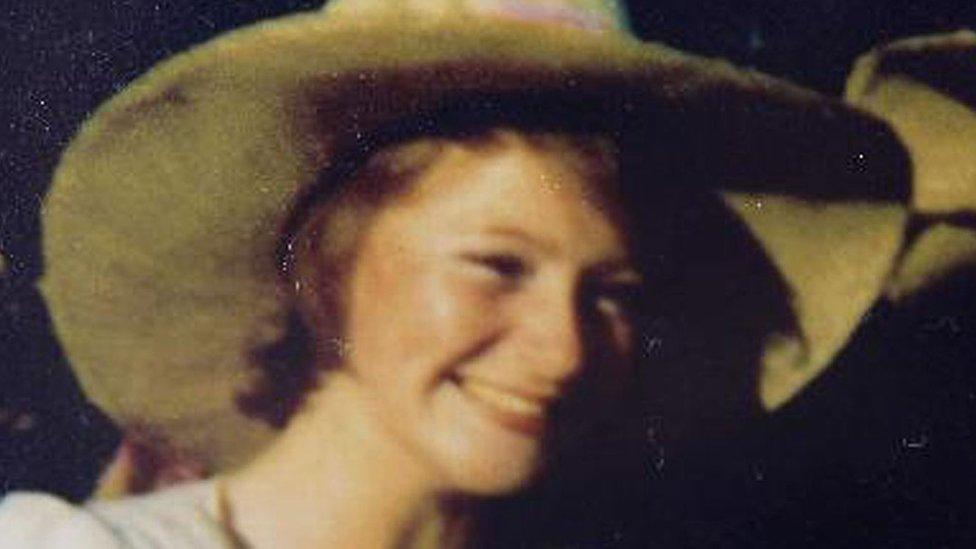
Maxine Hambleton was 18 when she was killed in the 1974 bombings. Her sister Julie, who was 11 at the time, described her as "like another mother"
The coroner said further submissions may be made on 23 March.
She said she was adjourning proceedings because of an "evidential vacuum" around claims made by the victims' families' lawyers.
Jeremy Johnson QC, for West Midlands Police, said its chief constable has no "principled objection" to the resumption of the inquests, but questioned whether Ms Hunt had jurisdiction to hear them.
But he added West Midlands Police would comply with the coroner's direction to supply any documents, statements and supporting evidence on a number of key factors raised by the families.
He also said the criminal investigation was still open.
A separate police review of evidence in the case, ending in 2014, discovered that of the 168 original exhibits listed for the Birmingham Six trial, 35 items could not be located.
Mr Johnson said the possibility of fresh forensic evidence was now being pursued with the help of the Army.
He said police were looking at information about the bombings in a book published by a former member of the IRA. They were also considering an account given to officers last August by a former firefighter, Alan Hill.
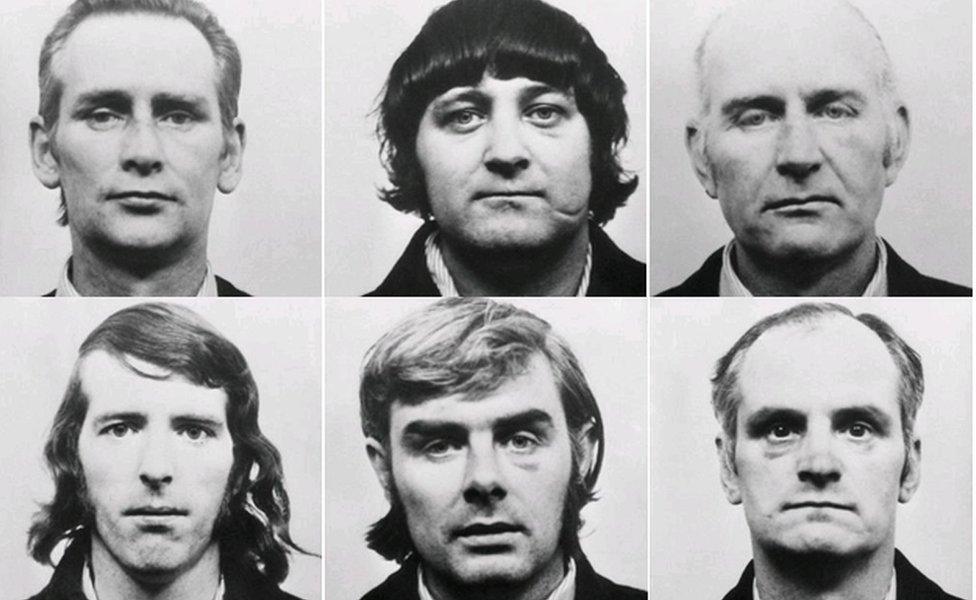
Paddy Hill, Gerry Hunter, Johnny Walker, Hugh Callaghan, Richard McIlkenny and Billy Power were wrongly convicted of the 1974 Birmingham pub bombings
An inquest was opened and adjourned in 1975 but, because the case was subject to a criminal investigation that resulted in the conviction of six men, it was never completed.
The families argue the inquests should now be resumed.

Analysis: Phil Mackie, BBC Midlands correspondent
This could be the last chance, in their lifetimes, for campaigners to have evidence heard in public which wasn't available in 1974. They'll hope coroner Louise Hunt will agree the inquest should be reopened and key witnesses, who the families believe can identify the bombers, be called.
West Midlands Police says the investigation remains active but there's not enough evidence for a fresh prosecution.
Calls for a public inquiry have fallen on deaf ears, which means an inquest remains the best chance for the families to discover who was responsible for the attacks.
Ordinarily a coroner's job is to determine how, where and when a person died, as well as their identity. In this case all of those facts are known, but the coroner can also investigate the circumstances of someone's death.
The victims' relatives are pinning their hopes on a resumption, and that it will be as far-reaching as the Hillsborough Inquest.
Birmingham pub bombings inquests: What we know

- Published12 March 2019
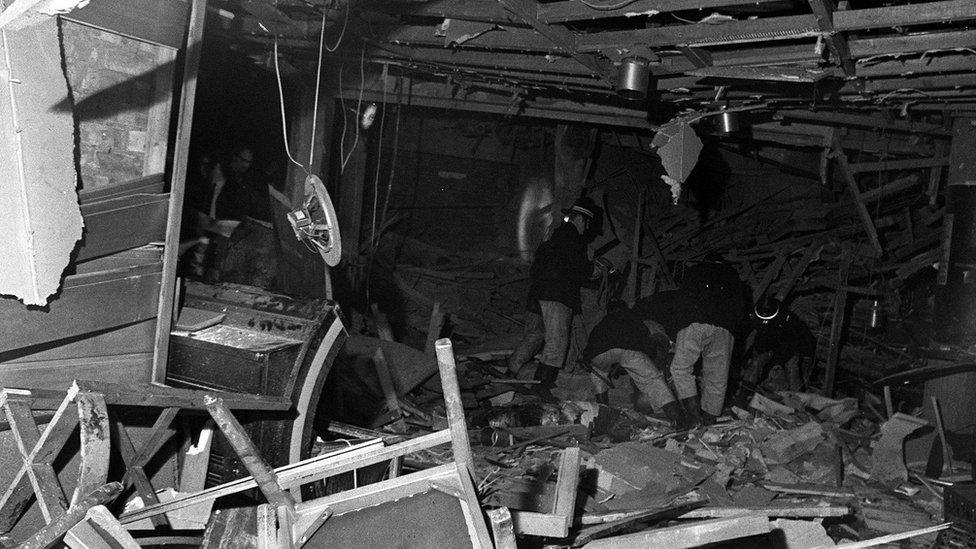
- Published21 November 2014
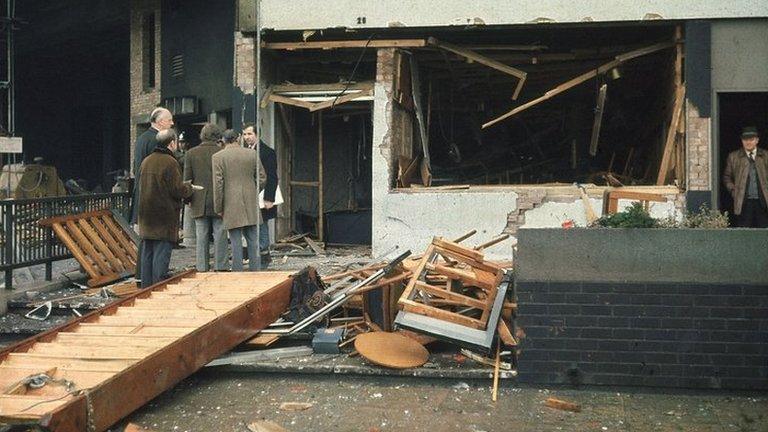
- Published14 November 2014
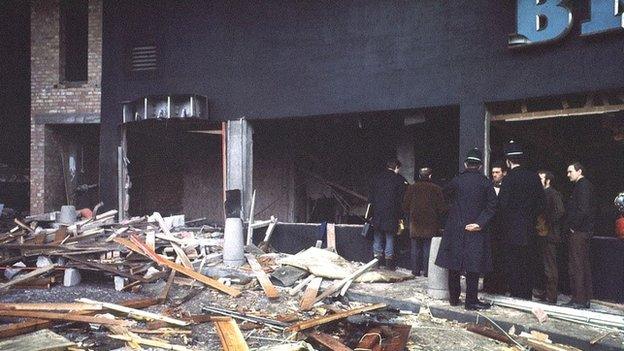
- Published11 May 2013
